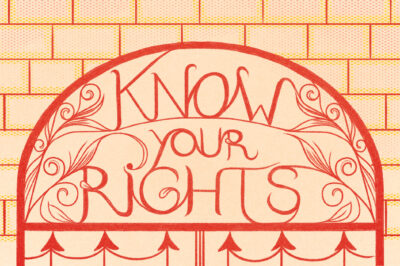Panhandling Restrictions Challenged by ACLU of Indiana Lawsuit
HEA 1022 effectively bans financial solicitations in downtown areas
INDIANAPOLIS – The American Civil Liberties Union of Indiana filed a class action lawsuit today challenging panhandling restrictions in House Enrolled Act 1022, which further criminalizes “panhandling” to the extent of outright prohibiting most forms of financial solicitation by individuals and groups in downtown areas of Indiana’s cities.
HEA 1022 was signed into law by Governor Holcomb in March, despite the fact that the Supreme Court has ruled that asking for monetary contributions is a protected form of free speech. The lawsuit, filed on behalf of the ACLU and three ACLU staff members who solicit donations in downtown Indianapolis during the celebration of Constitution Day, claims HEA 1022 targets particular First Amendment expression in a blatantly broad, vague, and unconstitutional manner.
“This panhandling ban is an unconstitutional attack on free speech,” said Ken Falk, legal director at the ACLU of Indiana. “Because of the broad definition of financial transaction, the expansion of the places near where panhandling is prohibited, and the increase of the distance restriction to 50 feet, HEA 1022 leaves virtually no sidewalks in downtown Indianapolis or any downtown area in any Indiana city where people can engage in this activity which courts have recognized is protected by the First Amendment.”
While handing out copies of the Constitution, ACLU staff and volunteers have solicited donations to the ACLU of Indiana. Indiana’s law defines this behavior as “panhandling” because staff and volunteers have requested an immediate donation of money.
“This new law has been painted so broadly that it prohibits our organization, the ACLU of Indiana, from collecting donations on Indy’s Monument Circle. But we know what this law truly aims to do is even worse,” said Jane Henegar, executive director at the ACLU of Indiana. “It is sometimes difficult to confront the face of poverty. But we must assist those who suffer the consequences of America’s income inequality and failed mental health system, not sweep them out of sight.”
The law is scheduled to go into effect on July 1.
“We understand that we are living in especially challenging times across the state of Indiana as we fight an ongoing pandemic. While it is clearly inappropriate for individuals to be approaching fellow Hoosiers on the street at this time, we must be sure that once we return to some form of normalcy, individuals rights are intact,” said Falk.
Attorneys on the case include Kenneth J. Falk, Stevie J. Pactor, and Gavin M. Rose, American Civil Liberties Union of Indiana.
The complaint is available here: https://www.aclu-in.org/sites/default/files/field_documents/panhandling_-_aclu_complaint.pdf
Stay Informed
Sign up to be the first to hear about how to take action.



